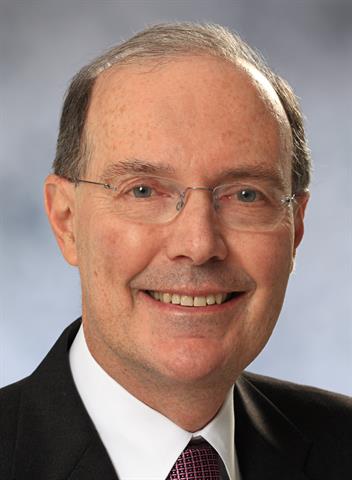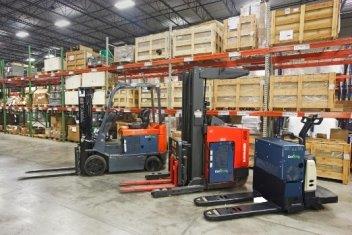 Andy Marsh |
Andy Marsh, president and CEO of Plug Power, stewards the company's mission to bring the hydrogen fuel cell market from concept to commercialisation, as the world moves forward towards electrification.
Some of the largest companies in the world - including Amazon, BMW, Carrefour and Walmart - have embraced hydrogen fuel cell-powered forklifts in their manufacturing facilities and distribution centres. This transition has brought significant gains in efficiency and cost savings, but many other companies have been slow to make the leap. That's because, today, the biggest headwind preventing a full shift to hydrogen in the electric forklift market is the need to prove value to companies which are used to the status quo. It's time to get the message out: the economic and environmental benefits of fuel cells are real, demonstrable, and already at work in the marketplace.
Globally, more than 1.33 million forklifts and other types of materials handling equipment were sold in 2017. About 60% of those, just under 800,000 in total, are driven by electric power, which is supplied by either batteries or hydrogen fuel cells. Fuel cell vehicle (FCV) solutions are working hard in warehouses and manufacturing facilities, bringing improved productivity by offering more work time, at full power, than batteries are capable of providing. And while, on a percentage basis, fuel cell-powered forklifts are still a minority, with 25,000+ currently deployed, that number is increasing and the opportunity for continued growth is massive.
Fuel Cell BenefitsOne of the greatest challenges in business today is the question of how to increase productivity and operational efficiency, while bolstering the company's bottom line and reducing its environmental footprint in the process. Fuel cells offer a solution that drives both efficiency and zero-emissions sustainability, while being highly cost-effective for businesses.
- The fuel cell "drop-in" replacement for batteries offers 100% power over the course of a full shift, even in freezers, increasing truck productivity while maintaining zero-emissions performance. Batteries, on the other hand, experience a decrease in power over the course of a shift, such that a battery-powered forklift cannot provide the same level of service at the end of a shift as it does at the beginning. This significantly impacts the productivity of the facility.
- Fuel cell adoption allows facilities to remove battery rooms, reallocating the space for profitable business activities, and simultaneously lowering facility electricity costs by eliminating the need for battery-charging stations. For companies used to dealing with variable electricity charges, depending on time of day, this is a significant cost saving.
- The FCV forklift can be refueled in under three minutes with a process that's similar to the way we put gas in our cars, enabling drivers to use the time savings of over 15-20 minutes of battery-swapping for other business-enhancing activities. Over the course of one day in a three-shift facility with 50 forklift vehicles, that's a savings of 42.5 hours each day or 15,300 hours per year over battery productivity for a facility working 360 days. For large businesses like Amazon, Walmart and Carrefour, time is money. The ability to cost-effectively increase productivity while operating zero-emission vehicles is critical to both their bottom line and their long-term sustainability.
- Data and analytics embedded in the fuel cell enables preventive maintenance on each unit within a forklift fleet, so that the facility's fleet operates at peak efficiency on an ongoing basis.
 A family of GenDrive units |
And it's not just about forklifts. Fuel cell technology has important benefits for the entire logistics chain. Small-scale robots that assist in order fulfillment, delivery vans that transport merchandise, airport ground support equipment that transports packages to and from airplanes, large machinery that loads and unloads containers at ports - these are all a part of the continuous flow of materials that keeps our economy running ... and they're all making the transition to hydrogen and fuel cells.
The difference is measurable and significant. According to research from Georgia Tech's Climate and Energy Policy Lab, "On average in the United States, electric urban delivery trucks use about 30% less total energy and emit about 40% less greenhouse gases than diesel trucks" (taking into account wells-to-wheels fuel production/emissions/daily operation). In terms of performance, the switch from batteries to fuel cell power expands an electric delivery van's range from 60 to 160 miles (a 166% increase), which is enough to complete delivery routes all day without recharging or refueling.
It's clear that hydrogen fuel cells are making a positive impact on global sustainability for industrial and fleet electric vehicle applications, today. The growing adoption of hydrogen and fuel cells in the materials handling and logistics space is a result of FCVs' increased operational efficiencies and reliability, as well as the increased availability of cost-effective hydrogen fuel and access to fleet performance data.
Yes, materials handling as we know it is changing ... for the better.